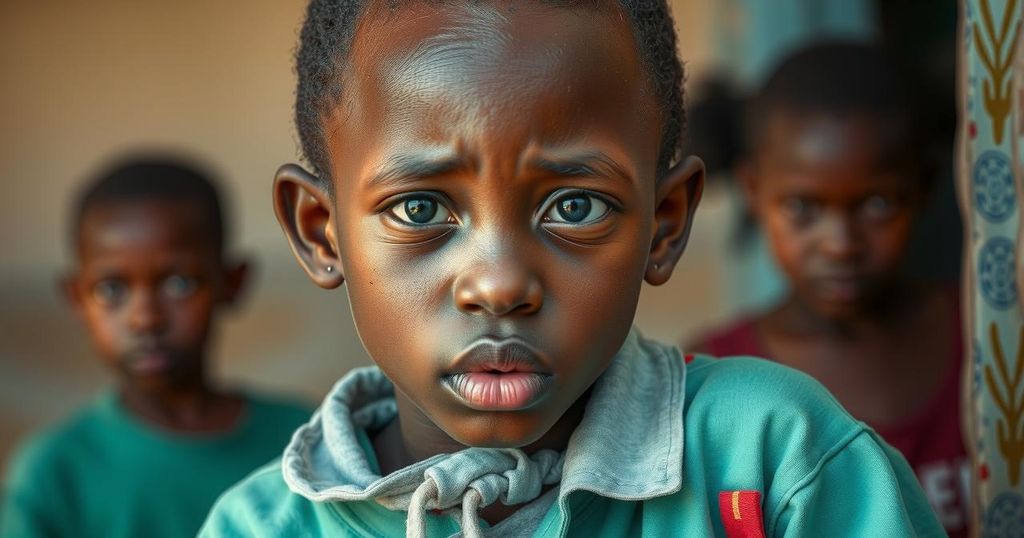“Disease X” has claimed at least 31 lives in the DRC, primarily affecting children. The outbreak, with 406 reported cases, has prompted investigations by WHO teams. Symptoms resemble respiratory infections, raising concerns about various potential causes, including malnutrition and prevalent diseases in the region.
A new and enigmatic illness, referred to as “disease X,” has tragically claimed the lives of at least 31 individuals, predominantly children, in the remote Panzi region of the Democratic Republic of Congo (DRC). The World Health Organization (WHO) reported that as of recent information, there have been 406 recorded cases of this disease in Kwango Province, located approximately 435 miles southeast of Kinshasa. Local health authorities face challenges in determining the true death toll, with some estimates indicating up to 143 fatalities.
As of October 29, the DRC’s Ministry of Public Health issued an alert regarding the rising death toll associated with this mysterious illness. A subsequent briefing on December 5 indicated a mortality rate of approximately 8%, with many deaths occurring outside of healthcare facilities. This information highlights the urgent need for community health investigations, according to local health officials.
Clinically, the illness resembles common respiratory infections, with symptoms including fever, headaches, coughing, and body aches. In response, WHO has deployed rapid response teams to analyze potential causes of the outbreak and facilitate an effective healthcare response. First responders are focused on laboratory testing, improving clinical profiling of cases, investigating transmission patterns, and identifying additional cases both in healthcare facilities and communities.
The WHO cautions that acute pneumonia, influenza, COVID-19, measles, and malaria are under consideration as potential contributors to the illness’s spread, particularly given that malnutrition is prevalent among the affected children. Given the geographical isolation of the outbreak, compounded by limitations in communication and the absence of a functional laboratory in the region, addressing this health crisis poses significant challenges.
Experts express concern regarding the possibility of further disease transmission and have not excluded the potential for airborne spread. While the WHO assesses the global risk as low, the proximity to the Angola border raises concerns about cross-border transmission of the disease.
The ongoing outbreak of illness in the Democratic Republic of Congo’s Panzi region has been met with heightened concern from global health authorities, particularly due to its impact on vulnerable populations such as young children. The circumstances surrounding this mysterious disease underscore the complexity and challenges of managing health crises in remote areas where resources are scarce and communicable diseases are prevalent. Previous alerts and the ongoing investigations serve as a reminder of the persistent health threats in this region, emphasizing the importance of swift and coordinated responses to emerging health risks.
In conclusion, the outbreak of “disease X” in the DRC underscores the critical need for targeted health responses in vulnerable regions. The involvement of WHO and local health officials aims to address the alarming mortality rates, particularly among children, and to identify the potential causes of the illness. Enhanced surveillance, robust communication infrastructure, and comprehensive healthcare strategies are essential to mitigate future health risks in remote areas facing similar outbreaks.
Original Source: www.cbsnews.com






